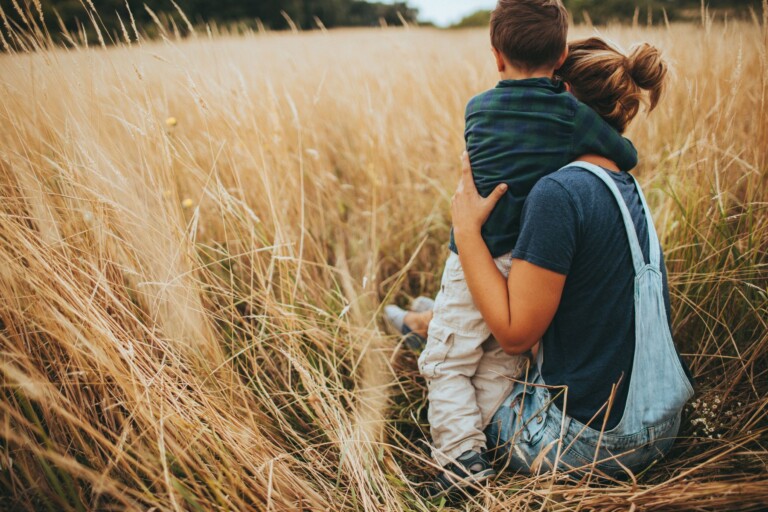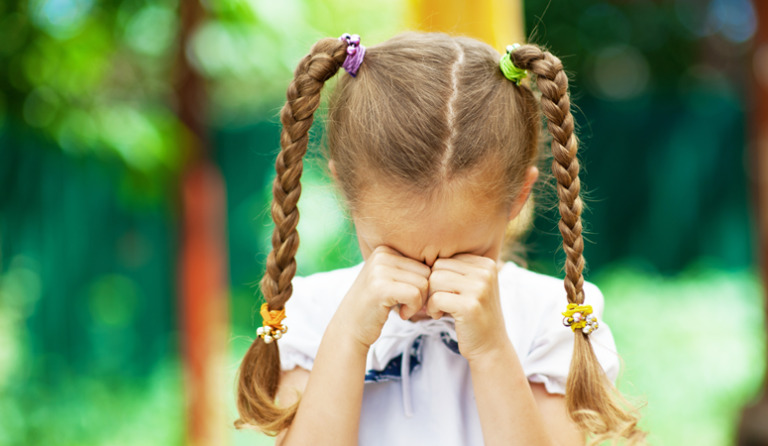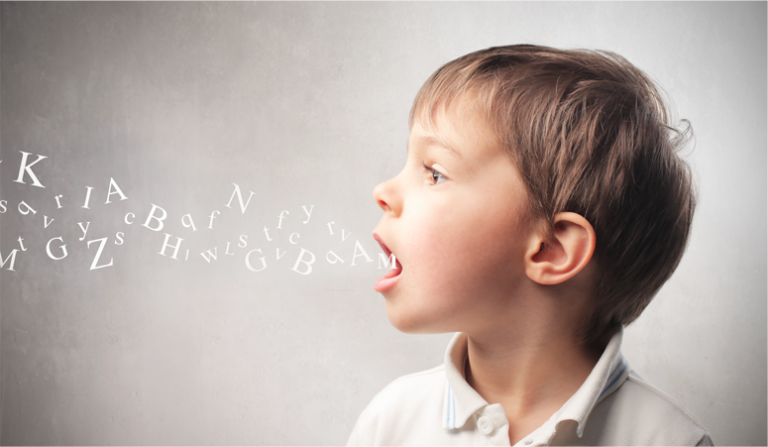10 EASY Social Skills Activities to Build Social Emotional Development
As parents we often focus on teaching our toddlers and preschoolers their letters, numbers and how to sing the alphabet song. But did you know social and emotional skills are just as important in kindergarten as academic skills?
In recent studies, they’ve found skills such as self-regulation and the ability to recognize emotions are just as important to success as academic achievement!
So how do we help our children build their emotional intelligence (check out our guide to EI for parents of young kids) along with their academic skills?
There are a few ways and it doesn’t need to be complicated. As a school psychologist I love finding easy social emotional activities for young kids to participate in and practice these vital skills.
In this post I’m sharing 10 easy social skills activities for preschoolers you can use to build their social awareness.
**If you are looking for more, here are 7 effective strategies to promote social and emotional development. Use these strategies in combination with the activities below!
10 Easy Social Skills Activities for Young Kids
Remember, the first step to regulating emotion is the ability to recognize it.
So be patient with your youngster as they learn these new skills.
#1 Use Books!:
I’m a big fan of books. You can use targeted books as tools to open dialogue with your children. One of the best social skills you can give your child is self awareness and the ability to express how they are feeling.
So teach them these skills with books!
As you read, ask them questions like:
What was your biggest take away from the book?; How do you think ____(character name) feels?; What would you do in that situation?
This will build their social awareness.
Not sure which books are the best to teach emotional intelligence? In this post I share my top 20 books to teach kids skills like the ability to recognize emotions, manage negative emotions and overcome their fears.
This post may contain affiliate links.
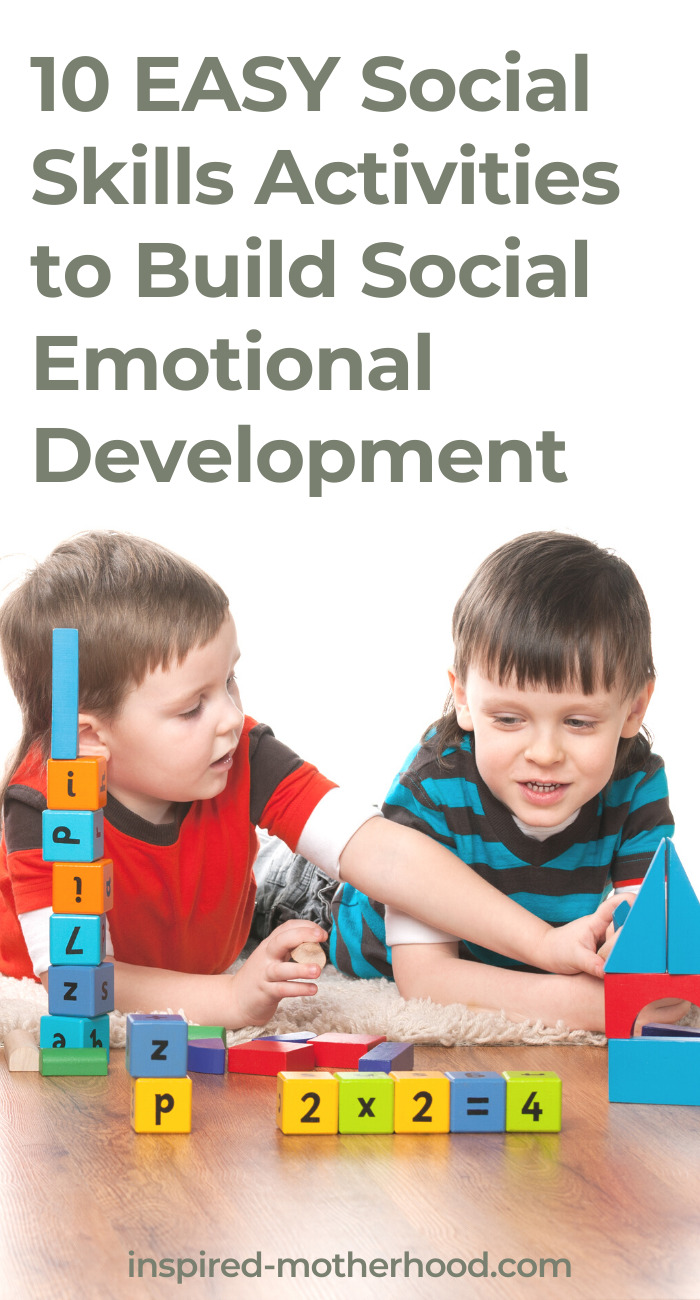
#2 Learn Facial Expressions + Emotions:
The first step to building emotional intelligence is understanding what emotions are and how to identify which emotion you are feeling.
My kids LOVE to make short videos on my phone where they practice their mad face, silly face or surprised face. Then they watch it back and giggle.
It helps them identify which facial expressions match each emotion in a non-threatening manner. Once your kids can do this you can build on top of it.
Go further and ask them questions like what does your body feel like when it’s angry? (Your face may get red, you may want to cry, your body may feel tight, etc.).
What does your body feel like when it’s silly? (You may laugh, have a smile on your face and giggle).
How to Teach Self-Control
#3 Practice Self-Control:
Self-control is hard to explain and something kids will learn over time. I love this activity to build their awareness of what self-control is and it gives them a chance to practice.
First, blow bubbles and tell your kids to pop as many as they can. After a few minutes, change the rules. Now they need to display self-control and not pop any of the bubbles. Instead, watch the bubbles float by or pop on the floor. This may be hard for them to do at first, but self-control takes practice.
Kids love this simple exercise and it gives them a concrete understanding of what self-control looks and feels like. Self-control is a great executive functioning skill and will help in all areas of their learning journey.
#4 Draw it out:
Sometimes it’s best to express yourself silently. When my daughter gets upset, she tends to grab a piece of paper and draw an angry or frustrated face. It gives her a chance to calm down and appropriately express her feelings of frustration.
Encourage your kids to draw out their feelings! Then you can use this activity as an opportunity for discussion.
#5 Watch and Learn:
Believe it or not some television shows can actually be beneficial! A study in the Journal of Children and Media in 2016 found that preschoolers who watched Daniel Tiger, after only 10 episodes, showed higher levels of empathy, self-efficacy and emotional recognition.
It wasn’t just watching the show though. The parents also talked to the child about the show and were involved in the process.
I know many parents want to limit screen time, but choose wisely when you do put the TV on.
I highly recommend Daniel Tiger, Sesame Street and Mr. Rogers Neighborhood (free on Amazon Prime). These 3 shows have been researched in the past and showed improvements in emotional intelligence after watching.
Build Emotional Intelligence With Games!
#6 Play a Feelings Game:
Feeling cards are great because they kids the difference in expression for each emotion. This game takes it to a whole other level with scenarios and conversation starters.
For example, “when I feel grumpy I can…a) get some rest, b) eat a healthy snack, c) do something that makes me happy.” It’s a great way to build those emotional regulation skills. See the game here.
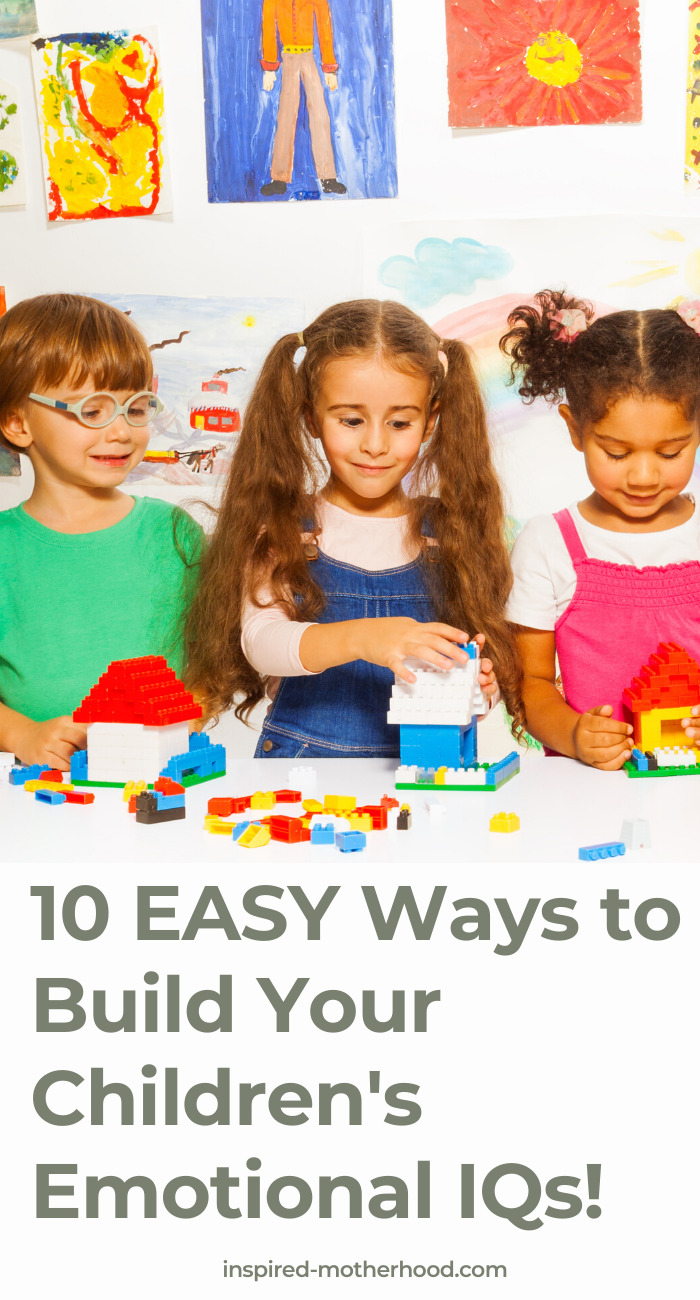
#7 Find More Resources Online:
There are so many free resources online to build your child’s emotional intelligence. Bringham Young University has a great list of ready to use lesson plans based on children’s picture books. Find it here.
You may already have many of these books in your library so you can coordinate activities to go along with the books.
Their lesson plans focus on social awareness, responsible decision-making, relationship skills, self-management and self-awareness.
#8 Simon Says & Red Light, Green Light:
These are simple childhood games you may already be playing with your children. Simon says helps children learn to follow directions and Red Light, Green Light is another game that teaches self-control. You need to listen and stop accordingly.
You don’t need to make every game a big learning event, but know that play and exploration are so helpful in childhood!
Talk About Feelings With Everyday Activities
#9 Use Traditional Board Games:
Games are a great way to learn important social skills. I often played traditional board games like Chutes & Ladders, Jenga and Connect 4 with my elementary students.
Games teach vital skills like working together, turn taking, learning to lose, etc. Games give children a chance to practice these vital social skills.
If you play at home and notice your child has a huge fit when they lose, start a conversation about it.
How does it make you feel? What can we do to help ourselves feel better? How should we respond when someone else wins?
Don’t shy away from letting them lose. This is an invaluable skill! It also gives them a chance to use the skills they have to help them regulate emotion.
At one point we will all feel angry or upset. But how do we get beyond that? It’s a great skill for kids to learn.
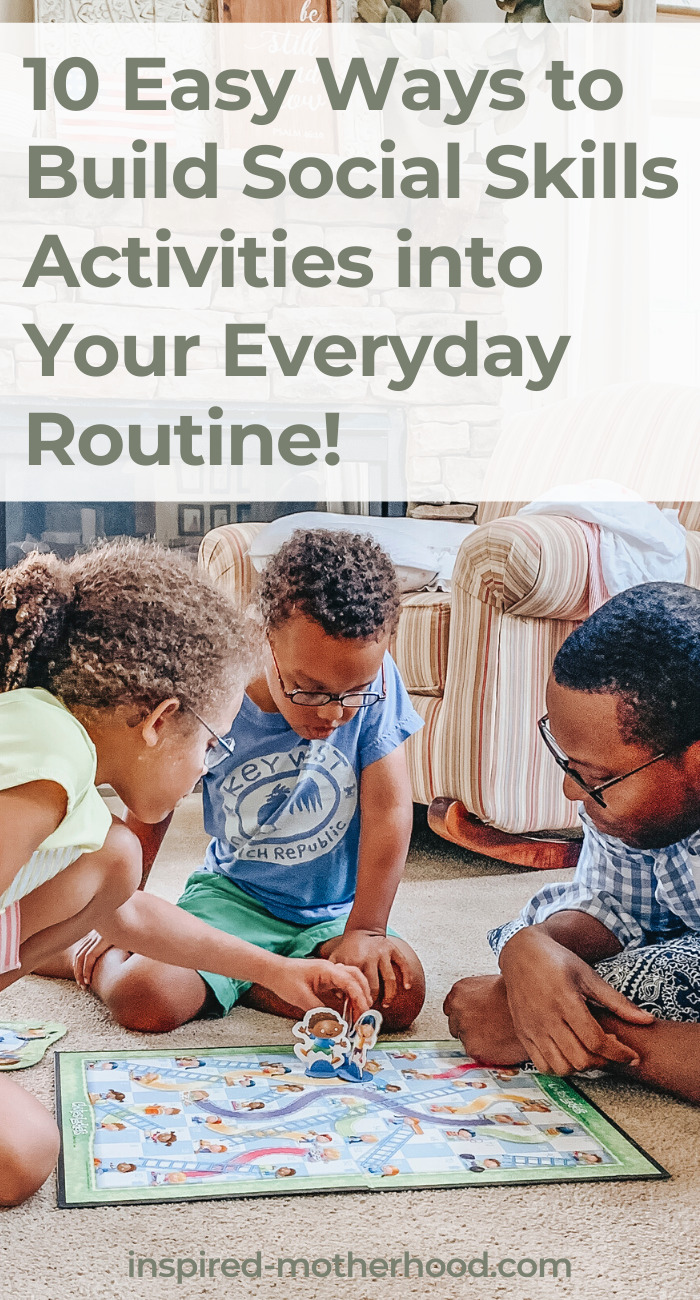
#10 Play Q’s Race to The Top Game:
Another great social skills game for preschoolers. It introduces social skills and allows you have great conversations about feelings and emotions. Your kids will love playing and answering the questions.
Here is one sample “What does it mean to be brave? Are you brave? Give an example.” A low key way to talk about the importance of our behavior! See game here.
These 10 activities should give your kid’s a good foundation for social skills and help you raise an emotionally intelligent child!
**If you are looking for more, here are 7 effective strategies to promote social and emotional development. Use these strategies in combination with the activities listed above.
Lastly, I’d love to hear from you. What are your favorite ways to build these skills? Leave a comment below!
Join our community of moms on Facebook for more support in parenting and motherhood.
Looking for more inspiration? Follow us on Instagram for daily encouragement in motherhood!



